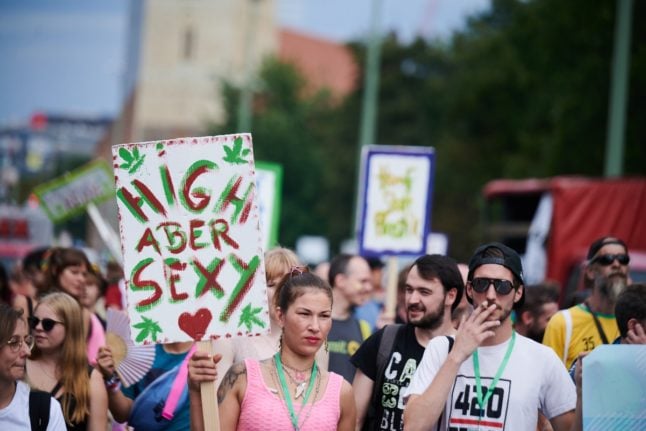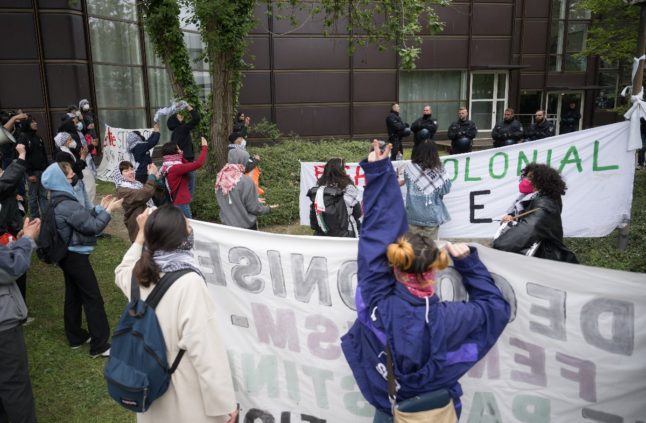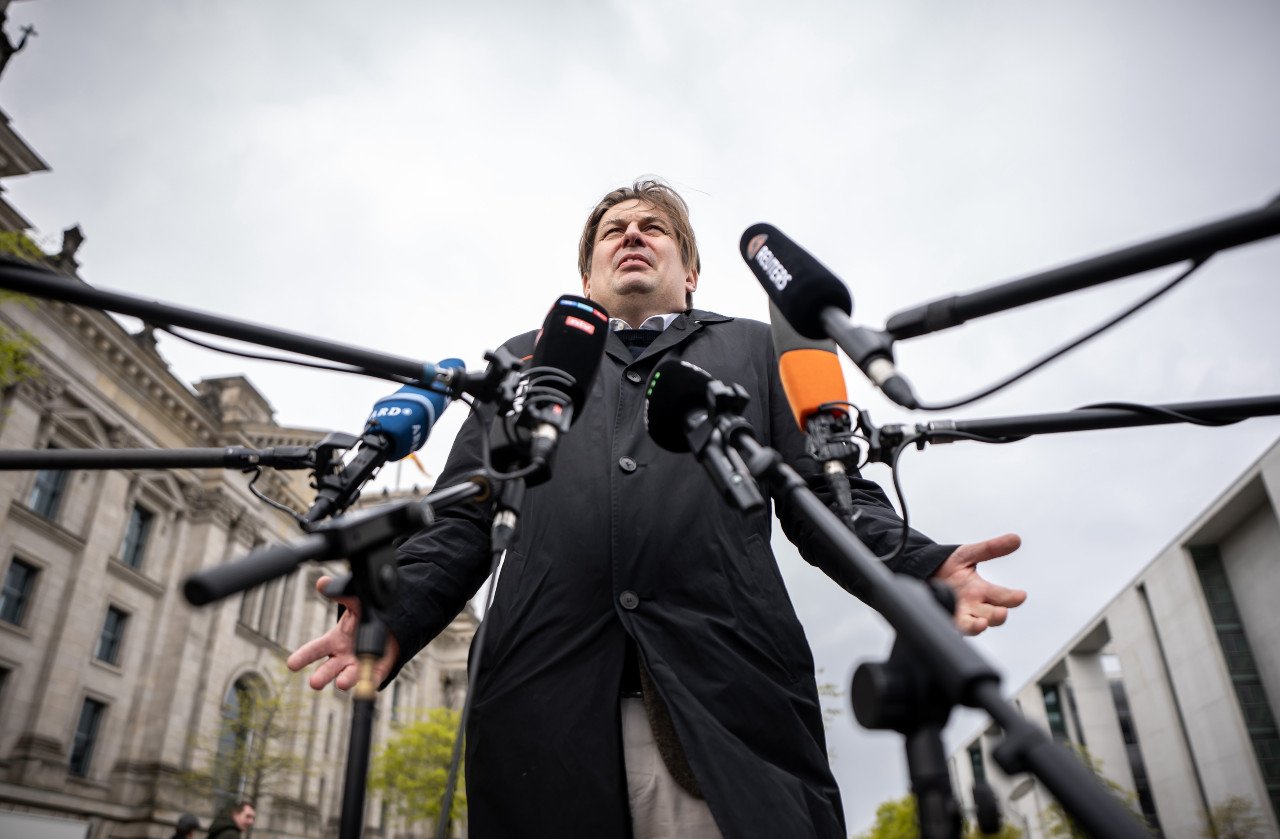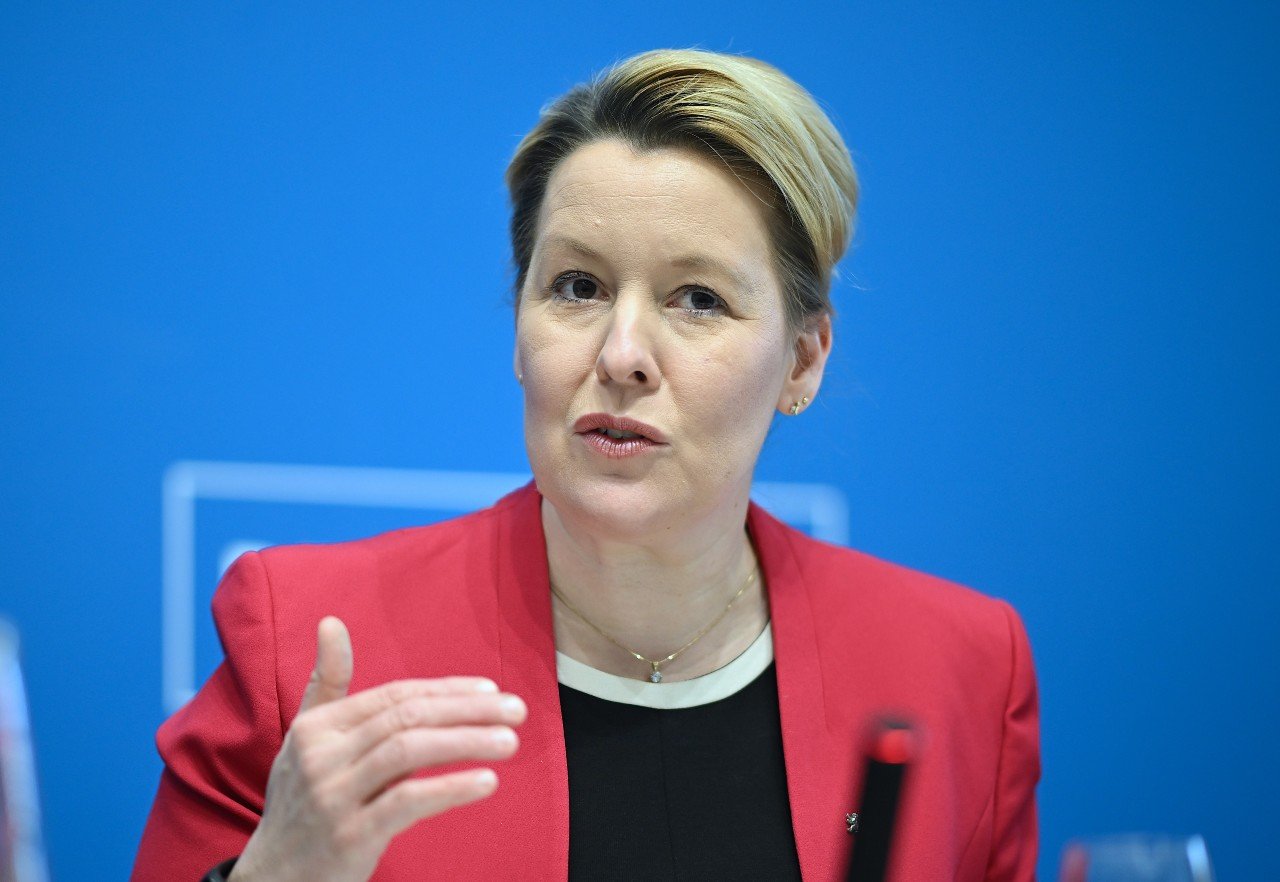Cannabis Legalisation Act to be voted on in Bundesrat
The Bundesrat is due to meet on Friday to debate and vote on Germany’s forthcoming Cannabis Legalisation Act.
Karl Lauterbach, German Health Minister who supports the legislation, has warned that some members of the Bundesrat may jump on the chance to refer the draft law to a joint mediation committee, which could seriously delay or block it.
Some opponents to legalisation have proposed to postpone entry of the law to October 1st. Others would rather see it severely reduced in scope, or even blocked indefinitely.
On February 23rd, the German parliament passed controversial legislation to legalise the recreational use of cannabis from April 1st with strict rules in place. The draft bill needs to be approved in the Bundesrat before it can be written into law.
READ ALSO: Could Germany’s cannabis legalisation law be delayed?
All day public transport strikes in Saxony
Trade union Verdi kicked off another strike of local public transport companies in the eastern state of Saxony.
All day on Friday employees in Chemnitz, Dresden, Leipzig, Plauen and Zwickau in particular are to stop work for the whole day.
Verdi has already announced that “massive cancellations” are to be expected. Only a few buses are set to run, as the companies renew their push for better wages and working conditions.

Tractor protests cause traffic jams as they return to Berlin
New protests by farmers have led to road closures and diversions in Berlin since Thursday. There are “considerable traffic disruptions”, especially around Straße des 17. Juni, the government district and the Bundesrat, according to local police.
Since Thursday morning, Straße des 17. Juni and other streets around the government district in Berlin-Tiergarten have been closed. There will also be closures on Leipziger Straße between Wilhelmstraße and Leipziger Platz through Friday.
The traffic is due to a planned rally on Friday with tractors and lorries – a rally has been announced between 12 pm and 5 pm at Platz des 18. March as part of a renewed action against the government’s agricultural policies.
It comes as relief measures – including reduced bureaucracy and tax relief for farmers passed by the government – go to the Bundesrat on Friday to be voted on as part of the Growth Opportunities Act.
However, farmers are still pushing for their original demand of fully keeping the agricultural diesel subsidy.
READ ALSO: Analysis: Why are German farmers so angry?
Highly endangered birds hatch at Erfurt Zoo
Special colourful chicks have recently hatched at Erfurt’s Zoo Park: Three young ‘balistars’ first saw the light of day there in mid-March, as the zoo announced on Thursday.
Balistars, – which have striking, snow white feathers – come from the Indonesian island of Bali and are considered to be threatened with extinction due to hunting and illegal trade.
According to the zoo, only a few dozen birds still live in the wild. European zoos are therefore running a breeding programme to strengthen the population.
Animals from the programmes are brought to Indonesia and released into protected areas there. According to the information, around 140 zoos in Europe keep the birds.
German minister to travel to Middle East in call for ‘humanitarian ceasefire’
German Foreign Minister Annalena Baerbock will travel to the Middle East on Sunday for her seventh visit since the outbreak of the Gaza war, she said in a speech to parliament.
The visit will focus on “how we can set all the levers in motion” towards a “humanitarian ceasefire… as difficult and as hopeless as it seems right now”, Baerbock told the Bundestag on Thursday.
The announcement came as government ministers from five Arab countries were meeting in Cairo with a Palestinian official to discuss the war ahead of talks with US top diplomat Antony Blinken.
The United States this week circulated for the first time a draft UN resolution calling for an “immediate” ceasefire, as warnings grow of famine n besieged Gaza.
The bloodiest ever Gaza war broke out on October 7th after Hamas launched an unprecedented attack on Israel, resulting in about 1,160 deaths, according to an AFP tally of official figures.
Militants also seized about 250 hostages, of whom Israel believes 130 remain in Gaza, including 33 who are presumed dead.
Israel has since waged a relentless offensive against Hamas that has killed nearly 32,000 people, mostly women and children, according to the health ministry in Hamas-ruled Gaza.
UN agencies have warned that Gaza’s 2.4 million people are on the brink of famine, and UN rights chief Volker Turk said Israel may be using “starvation as a method of war”.





 Please whitelist us to continue reading.
Please whitelist us to continue reading.
Member comments